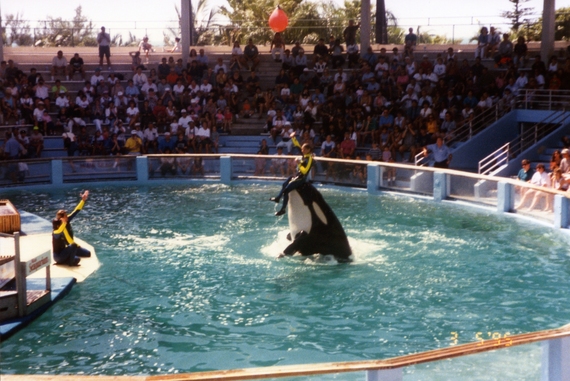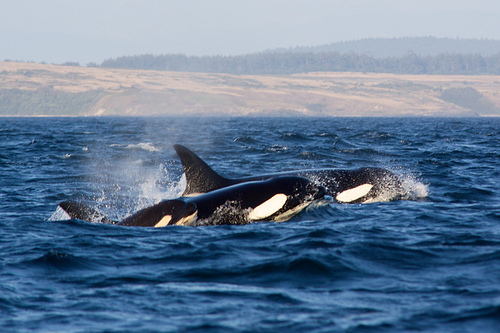Lolita's life changed in an instant. One moment, she was swimming alongside her mother and extended orca family, learning how to catch her dinner and playing with her cousins. The next, she was being scooped up in a net, surrounded by men and the screams of her loved ones, not knowing that those anguished cries would be the last communication that she would have with her family. Lolita has been crammed inside a tank barely any larger than the length of her own body at the Miami Seaquarium for more than four decades. Lolita's wretched world is the smallest tank in North America, and she hasn't even had the simple comfort of another orca's company since 1980.
But Lolita's torment may finally be coming to an end.
Two years ago, PETA, the Animal Legal Defense Fund, and four individuals sued the National Marine Fisheries Service over Lolita's exclusion from the Endangered Species Act (ESA). The ESA protects members of the endangered Southern Resident orca population, the pod from which Lolita was kidnapped, from being harmed or harassed. Yet, despite being a member of the Southern Residents, Lolita has been denied the same protections that her wild family enjoys. After an agency review, the NMFS now agrees with PETA: Listing Lolita as a Southern Resident is warranted. This decision opens the door to her eventual release.
PETA and the ALDF believe that Lolita's horrendous confinement conditions are prohibited by the ESA and will continue to work to have Lolita transferred to a coastal sanctuary in her home waters off Washington state's San Juan Island and, if possible, back into her family pod. In the wild, Southern Resident orcas often spend their entire lives with their mothers. Lolita recognized her pod's calls decades after being captured, and her 85-year-old mother is still thriving. Lolita has a lot of life to live and, after decades of deprivation during which her only activity was performing silly tricks, she deserves to be allowed to spend it in a natural setting.
A coastal sanctuary would give her greater freedom of movement and allow her to feel the tides and waves. But most poignant of all -- there is a very real possibility that she could reunite with her mother, aunts, cousins and siblings.
As so many now know after having watched the riveting documentary Blackfish, orcas possess sophisticated learning, problem-solving, and communication skills. Wild orcas live in large groups with complex relationships that include long-term friendships and alliances and cooperative networks. The sheer desolation and hopelessness that Lolita has experienced during her years of solitary confinement in a tank measured in gallons, with nothing to do but wait for the interminable days to pass, are unimaginable. The same can be said of her cousins trapped in misery in SeaWorld's tanks. But Lolita may now have the chance to experience the sheer joy of being reunited with those she was torn away from. And that's what PETA will continue to fight for.
The wrong that has been done to Lolita can never be forgiven, but it can―it must―finally be made right.

